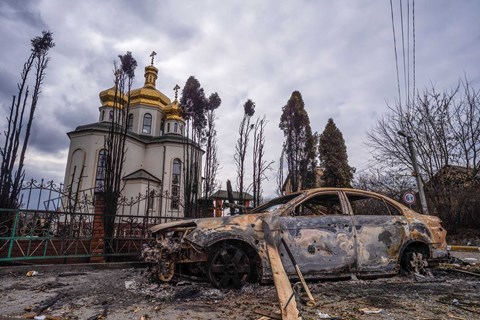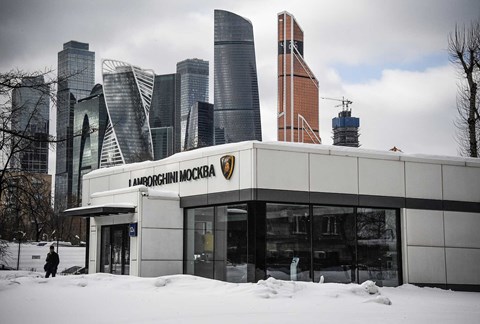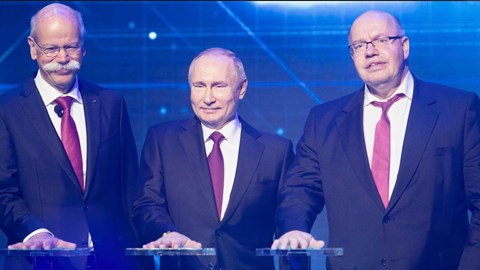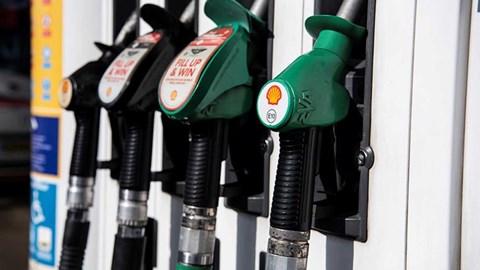► How war in Ukraine affects the industry
► A round-up of the latest news and impacts
► Analysis and what it means to motorists
Skoda has revealed it is still sourcing components from Ukraine, as some factories in the west of the country that are less affected by war are restarting production of items like wiring harnesses.
Speaking after the annual results where Skoda announced €1.1 billion (£916 million) operating profit despite selling fewer cars, chairman Thomas Schäfer said: ‘The Ukraine is an integral part of our supply chain. It’s not just cable harnesses, we have switch suppliers and other components from there, as well as raw materials. The biggest impact for us is the cable harness suppliers. Why? Because it stops any production of vehicles. It’s the nerve centre of a vehicle, you cannot produce a car without it. Without switches, we can wait for supply and then retro-fit them. We cannot do this with cable harnesses.’
The Volkswagen group is planning to start alternative production locations for the looms, but Schäfer said that limited supply was still coming from Ukraine. ‘Some of the key suppliers in Ukraine have restarted production again. There is a law that says they can work so long as they have an air raid bunker within 25 minutes. They are still managing to get production going. It is not full production but it is some. In another four to five weeks we should have started production elsewhere.’
The Skoda boss admitted that the outlook for raw material prices remained bleak. ‘If it carries on like this, price increases are unavoidable.’ Skoda has stopped production in both of its locations in Russia.
War in Ukraine and the car industry
The Russian invasion of Ukraine is having a wide-ranging impact on the automotive industry and is piling pressure on a sector already under duress from the past few years of Brexit, the pandemic, chip shortage and political pressures to electrify. And drivers are being hit by record fuel costs, as UK pump prices spike to nearly £2 a litre in the most extreme cases.
In this round-up, we look at the effect of the Ukraine crisis on the industry and on everyday motorists.

Car manufacturers’ response to war in Ukraine
The Russian car market has been isolated from the rest of the world, after shipping giants MSC and Maersk suspended container shipping to and from the region. This has effectively closed down imports and exports there. In addition, manufacturers have made a variety of responses to the invasion of Ukraine.
Aston Martin On 1 March, Aston Martin announced it was stopping sales in Russia. Sales there and Ukraine account for less than 1% of its global registrations.
Audi Production of A4, A5, A6 and A7 models are being suspended in in mid-March at factories in Ingolstadt and Neckarsulm. Electric Audis based on the MEB platform are also affected and Audi has confirmed that the order bank for plug-in PHEV models is full for 2022.
BMW The Munich premium brand is pausing production at certain German and UK factories as it addresses supply chain issues.
Bridgestone The global tyre giant is suspending manufacturing in Russia from 18 March, where it employs more than 1000 staff in Ulyanovsk. It has also frozen any new investments, halted exports to Russia and donated €3.5 million to the Red Cross and UNHCR charities.
Ferrari Maranello said on 8 March: ‘Given the ongoing situation Ferrari has taken the decision to suspend the production of vehicles for the Russian market until further notice.’ Ferrari is donating €1 million (£830,000) to support Ukrainians displaced by the crisis.
Ford The Blue Oval has suspended operations with Russian joint venture partner Sollers, which was winding down anyway. It builds and sells commercial vehicles in the region. European chief Stuart Rowley said: ‘We have many Ukraine nationals working for Ford. We have provided support to them and we have suspended our business in Russia.’ He added that the Blue Oval was having to find alternatives to some components manufactured in Ukraine.
Honda The company is halting exports of cars and motorbikes to Russia, but it is a bit-part player there: it sold fewer than 2000 vehicles last year.
Hyundai The Korean car maker said production at its plant in St Petersburg was being affected by supply issues and a lack of semiconductors.
Jaguar Land Rover JLR has paused operations in Russia, it announced on 1 March. ‘The current global context presents us with trading challenges so we are pausing the delivery of vehicles into the Russian market and continually monitoring the situation on behalf of our global customer base.’

Lamborghini On 8 March, Sant’Agata confirmed it was suspending operations in Russia (above). ‘In light of the current situation, business with Russia has been put on hold.’
Mercedes-Benz Mercedes has revealed it could lose around €2billion worth of assets, if new plans by the Russian state go ahead. Like many other manufacturers, Daimler has wound down production in Russia, but Russian government plans to nationalise abandoned assets could result in a huge loss. Mercedes has invested €250 million in a new factory, with Russian president Vladimir Putin attending the ribbon-cutting ceremony in 2019, (pictured below with Dieter Zetsche, then head of Mercedes-Benz Cars, and Peter Altmaier, German Federal Minister for Economic Affairs and Energy).

Nissan Japanese car maker has paused car exports to Russia.
Porsche Production of the popular Macan and Panamera plant in Leipzig have been restricted during the supply chaos. It blamed the availability of wiring looms.
Renault The French car maker is deemed the most exposed to the Russian market, with its Avtovaz venture and Moscow factories. Production has been disrupted and shares in Renault have plunged by nearly 40% since mid-February. Russia is the company’s second biggest market globally.

Stellantis The European conglomerate has announced it will move van production from Russia to western Europe. Speaking to CAR magazine, CEO Carlos Tavares (above) said: ‘Stellantis is reasonably safe, from a pure business perspective, because our business in Russia and Ukraine, I would say unfortunately, was very small. And therefore we are not impacted in any significant way from a business perspective. So far, in terms of supply chain, things are manageable. I will not say they are perfect. But if my plants are shut down, it’s not because of Russia and Ukraine – it’s because of the semiconductor supply shortage.’
Toyota The company – Russia’s top-selling Japanese car maker – has confirmed it is stopping production of RAV4 and Camry models for sale in Russia, Belarus, Kazakhstan and Armenia. ‘Toyota Motor Russia will stop production at its St Petersburg plant from 4 March and has stopped imports of vehicles, until further notice, due to supply chain disruptions,’ the company said. It has 168 dealerships in the country.
Volkswagen VW has reduced production of key models in Wolfsburg as supply chains are disrupted. Wire harnesses are made in Ukraine and the shortages have affected Audi, BMW, Mercedes and Porsche production in Germany too. Supplies are also affecting production of MEB electric cars.
Volvo The Swedish car maker is suspending shipments to the Russian market for the foreseeable future.

Petrol prices soar to record high
Pressures in the global energy network have pushed the price of oil to $139 a barrel, a 14-year high. Net result? Higher prices at the pump for motorists, who have seen unleaded and diesel surge past £1.50 a litre – and many analysts fear prices will spiral further as the West close off oil supplies from Russia.
Analysts predict that soaring fuel prices will further accelerate sales of electric cars… although the supply chain problems outlined above mean that waiting times for EVs are becoming even longer. It’s a devilishly difficult problem.
Car costs are rising too…
The crisis in Ukraine is also threatening to push up the price of cars, as raw materials become scarcer and more expensive. The price of metals has jumped on the invasion: aluminium and palladium for catalytic converters are pricier, while Stellantis CEO Carlos Tavares has called for a cut in steel tariffs to prevent hyper-inflation in the supply chain.
We’ll update this round-up with significant news of the impacts of the Russian invasion of Ukraine on the car industry. Stay tuned.